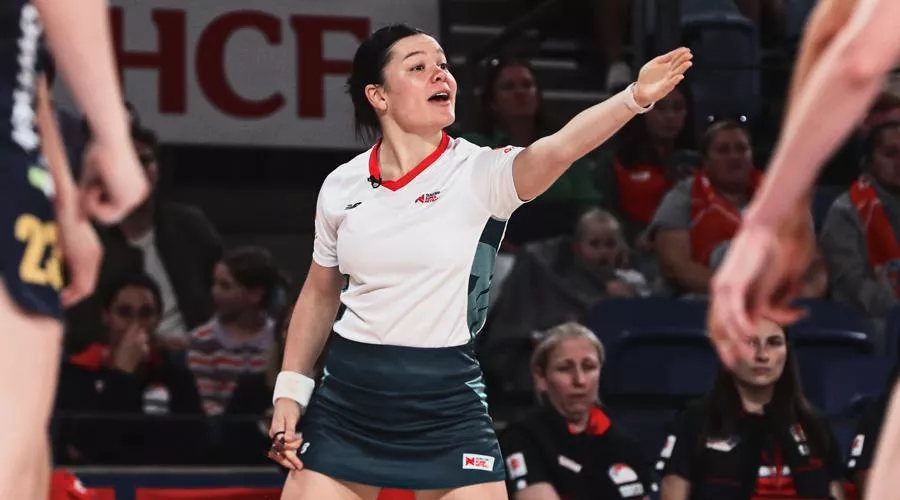For many Aboriginal people, netball is a part of growing up in Australia. Whether our men and women are playing, watching, officiating or supporting their local league and players, community netball can play a huge role in both the wellbeing and cultural strengthening of our communities.
And you only need to go to a community game or Indigenous netball carnival to see some of the best grassroots talent in this country.
Proud Wiradjuri woman, Jordan Kiss, umpires in the Suncorp Super Netball. Jordan follows in the footsteps of Gungarri woman, Stacey Campton, who umpired at Australia’s top-level and internationally for 14 years and, is now in her second year as Netball Australia's high performance umpire coach.
A successful career Jordan aspires to.
Born and raised on Darkijung Country, Jordan has played netball since the young age of six years old. Whilst playing at an association level at the age of 13, Jordan discovered that her local clubs were desperate for umpires on a Saturday. So, she took on her first umpiring role.
The excitement and competitiveness of netball Jordan always loved, and she soon developed an equal love for umpiring.
“As a young girl I was very shy, extremely shy,” Jordan said.
“The whistle gave me some confidence, trust, and self-belief.”
Jordan found her place and sense of belonging at a local club level and through Netball NSW pathways.
“Netball was my community,” she said.
Jordan’s connection to her Wiradjuri mother’s country and community came later in life, when her adopted mother found her way back to her ancestral lands. A story of dispossession from homelands and kinship that Aboriginal people know well, as a result of past and current government policies.
Through her journey, Jordan had to work hard to learn her cultural stories and family connections. A life-long learning as a Koori woman, discovering her family’s stories, reclaiming her cultural practices and old and new ways of living.
Jordan expressed her ‘strength in knowing’. How deepening her knowledge and ancestral connections has led to a ‘greater self-understanding and sense of belonging.’
Growing up on the NSW Central Coast, Jordan didn’t have many Aboriginal community members around her for cultural support and guidance.
Today, she takes the netball court proud of her culture, her mother’s story and her own pathways. Unconsciously influencing a nation, increasing representation for Aboriginal people and those from culturally diverse backgrounds.
As an umpire, it’s a very individualised sport, compared to the team netball playing environment.
“It can be daunting,” she said. “You’re stuck out there by yourself.”
Jordan attributes her support network, her association and the Netball NSW community for her continued love and success in the game.
“They were and are still very supportive.”
She expressed the benefit of a collective of co-umpires and coaches who can listen and understand one another. To develop a support network so you don’t feel so alone as an official.
Like players, umpires are coached and given feedback on their technical and physical performance.
“It’s definitely taught me resilience,” she said.
As a young woman new to the Suncorp Super Netball high performance umpire team, Jordan acknowledged that “It’s empowering to have a team behind the scenes”.
Jordan feels she is in a supportive environment, amongst what could feel like a daunting expectation and responsibility for any young woman at an elite level, on top of representing her community as the only national-level Indigenous umpire today.
“What keeps me wanting to umpire is my love for netball and the friendships I have formed,” she said.
“It’s not all about netball, it’s about the relationships developed off the court.”
Jordan’s advice for inspiring young women is to “find what you enjoy. When you have that love for something, it’s a natural progression to want to improve”.
First Nations people like Jordan Kiss should be valued and celebrated by all Australians. For their talent and skills in their respective areas and for their survival and connection to the lands that non-Indigenous Australians are blessed to live, work and play on.
The hope is that stories like Jordan’s inspire more Indigenous players, officials and staff at an elite netball level.
